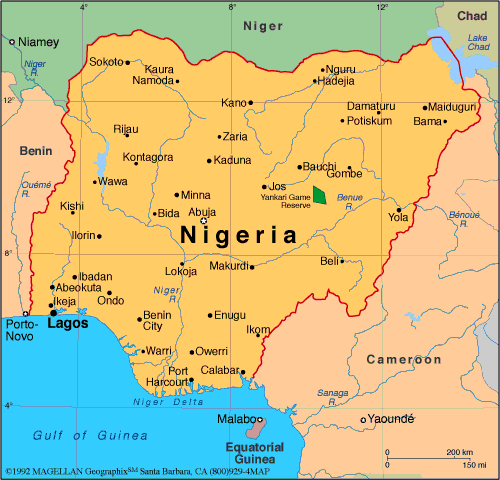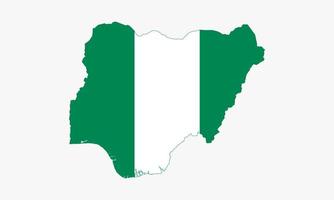Experts in the Nigerian oil industry have advised the Federal Government to involve host communities in the protection of petroleum pipelines as such will help curb crude oil theft.
The experts at the Nextier Development Discourse, noted with dismay that criminal organizations have continued to reinvent themselves because the core concerns are neglected and advocated for international cooperation to combat global oil theft.
The experts made up of professionals convened on Wednesday to examine the country’s existential economic threats caused by the country’s failure to combat crude oil theft.
They noted that crude oil theft cost Nigeria at least 3.5 billion dollars in revenue in 2021, accounting for 10 per cent of the country’s foreign reserves, adding that the Nigerian National Petroleum Corporation (NNPC) previously announced a loss of 159 billion dollars due to oil theft and pipeline vandalism in 2019.
The Professionals at the dialogue with the theme “Protecting Petroleum Pipelines: Strategy for Curbing Oil Theft in Nigeria”, drew participants and panelists from the oil sector with notable names like Barrister Sam Otobueze, Former General Manager/NNPC Group Security, Joe Nwakwue, Petroleum Sector Specialist and Partner, Zera Advisory, Thomas Kieler, Political Adviser on Security to the European Union Delegation in Nigeria and Charles Achodo, Senior Director, Nextier.
It was also noted that recent figures revealed that oil thieves take up 95 per cent of Nigeria’s oil production.
They said despite rising international oil prices, NNPC Limited failed to remit its mandatory funding to the Federation Account in January 2022. In February 2022, it deducted ₦383.09 billion from the oil and gas revenue due to Nigeria’s Federation Account.
“These deductions were for joint ventures (JV), strategic holdings, pipeline operations, and other costs that resulted in the non-remittance to the Federation Account. According to a credible source at the Central Bank of Nigeria, NNPC Limited has not remitted any money in the last five months, and there are more trying months ahead. Nigeria has resorted to borrowing, with the Debt Management Office reporting that Nigeria’s total public debt stock increased from ₦32.92 trillion in 2020 to ₦39.56 trillion in 2021.”
At the Nextier Development Discourse, experts took turns to interrogate oil theft, including challenges and prospects available to change the situation.
Joe Nwakwue, in his presentation, worried that losses associated with oil theft have continued to rise. According to him, Nigeria’s oil production in 2021 averaged about 1.6 million barrels but has reduced to 1.2 million barrels in 2022. This means that Nigeria has an idle economic capacity shortage of about 700,000 barrels per day.
Speaking about the investment potential in Nigeria, Joe Nwakwue outlined numerous reasons why investors may be hesitant to engage in Nigeria’s oil business. According to him, when considerable volumes are lost, the technical unit cost of manufacturing rises, making enterprises less profitable. If the investor has a re-payment timeline and no volumes to meet, the scenario becomes considerably worse.
On his part, Sam Otobueze regretted that the rise in oil theft portends doom for Nigeria in the coming years, citing that oil and gas account for 89 per cent of Nigeria’s national income. He also noted that the exponential population growth triggers increased insecurity as resources to care for citizens become scarcer. He further stated that it is easier to make laws than enforce them. Making law in the face of hunger may prove impotent. He advised the engagement of relevant stakeholders and gaining community buy-in in implementing laws on pipeline protection. Sam further highlighted that it is impossible to anticipate or demand local population involvement in pipeline security until the gains are shared equitably with the locals.
Thomas Kieler observed misconceptions about the structure of criminal groups involved in oil theft. He claims that oil theft and illicit bunkering are not limited to small artisanal organisations but involve highly organised criminal gangs. He was perplexed as to why Nigeria finds it difficult to follow the Saudi Arabian pipeline monitoring model.
In response to inquiries about the probable drop in sea piracy, Kieler stated that the Niger Delta region had a significant presence of naval assets. According to him, there are five European naval assets from Denmark, France, Italy, Spain, and Portugal in the Gulf of Guinea. The Nigerian Navy and the Nigerian Maritime and Safety Agency (NIMASA) have also upped their operations. Also, a new anti-piracy law was passed in 2021, resulting in the conviction of ten pirates.
Kieler further stated that efforts in curbing the challenge of curbing oil theft in the Niger Delta could take the short, medium- and long-term dimensions. He described the short-term plan as “securing the region and defending pipelines,” with the medium-term plan being “law enforcement and identifying financers.” The most difficult yet beneficial is the long-term arrangement that involves the host communities in important decision-making and livelihood processes.
In his response to the lack of development in the Niger Delta, Joe Nwakwue asserted that no part of Nigeria is developed. Rather than give the benefits directly, we have created artificial entities called unaccountable states. Huge sums have been devoted to developing the Niger Delta, but intermediaries at the state level have diverted these resources. According to him, people are stealing crude because they are thieves, not because of hunger or underdevelopment in the region.
Dr Ndubuisi Nwokolo, Partner at Nextier, remarked on the moral economy in the Niger Delta in his presentation. According to him, every indigene in the Niger Delta who steals oil can claim moral standing. He described the issue in terms of the greed-grievance ideology, in which people desire to transition from being offended to becoming greedy for their share. According to him, oil thieves in the Niger Delta react to how the state and political class have treated them.
To avoid what he termed “the balloon effect”, Kieler recommended that attention be given to long-term objectives such as empowering and sustaining impacted communities. According to him, criminal organisations keep reinventing themselves because the core concerns are neglected. To maintain accountability, Joe Nwakwue pushed for the adoption of technology such as the Kimberly process or fingerprinting for each export grade. He also advocated for international cooperation to combat global oil theft.
Dr Ndubuisi highlighted that Nextier would facilitate stakeholder engagements with community leaders, implementing partners, and oil companies to further discuss the best way to end oil theft. He sorted for greater messaging and media publicity for people to become aware of the dire consequences of bunkering and illegal oil theft in Nigeria.
Vanguard News






